Serving Nevada, California, Arizona, and Colorado. Get FULL compensation for all losses. 20+ years experience. Available 24/7.
Free Consultation +1 (702) 331-5722.
Personal Injury Attorney Who Puts You First
We’ll help you determine if you have a valid personal injury claim. We know that accidents can leave you feeling overwhelmed, hurt, and uncertain about what to do next. If you’ve been injured in an accident, you might be wondering whether you have the right to seek compensation. Most personal injury claims come down to proving negligence—meaning another party’s actions (or failure to act) directly caused your injuries. Below, we break down the key factors that can help you determine if you have a strong case and the potential to recover compensation.
At Howard Injury Law, we’ll guide you through the legal process as your personal injury lawyer in Las Vegas. From the initial FREE consultation to the resolution of your case, we are committed to providing comprehensive support and representation.
In a car accident within the last two years? Click here for your FREE auto accident checklist.
How To Know You Have A Valid Personal Injury Claim
To pursue a personal injury claim, it must be clear that you were NOT responsible for the accident. This means another party—whether a reckless driver, negligent property owner, or a careless company—owed you a duty of care and failed to uphold it. For example, if a driver ran a red light and crashed into your motorcycle, or if a business failed to fix a hazardous condition that led to your fall, you may have a valid case against them.
Even if an accident was not your fault, you must have suffered physical injuries or damages to file a claim. Without proof of injury, it becomes difficult to establish that you deserve compensation. Seeking medical attention immediately is crucial not only for your health but also to document your injuries as evidence.
Common injuries in personal injury claims include:
- Broken bones
- Spinal cord injuries
- Traumatic brain injuries
- Whiplash
- Severe burns
- Internal injuries
- Permanent disability
A critical factor in personal injury claims is the severity of the impact. If you were in a minor fender bender with no visible damage to your car, proving an injury claim might be difficult. However, if the accident involved significant force, causing damage to your vehicle and leading to medical treatment, you are in a stronger position to claim compensation.
The primary purpose of a personal injury claim is to recover compensation for damages. These damages can include:
- Economic damages – Medical bills, lost wages, property damage, rehabilitation costs, and future medical care expenses.
- Non-economic damages – Pain and suffering, emotional distress, loss of enjoyment of life, and psychological trauma.
- Punitive damages – In cases of extreme negligence or recklessness, additional compensation may be awarded to punish the defendant and deter future misconduct.
If you did not suffer any financial, emotional, or physical harm, it is unlikely that you have a valid personal injury claim.
In Nevada, personal injury claims are subject to a statute of limitations, meaning you must file your lawsuit typically within two years of the date of the accident. For medical malpractice claims, they’re around one year of the incident. If you fail to take legal action within this time frame, you may lose your right to seek compensation. Some exceptions may apply, but in most cases, acting quickly is crucial to preserving your claim.
Many accident victims unknowingly jeopardize their cases by making critical mistakes. Here are some common pitfalls that could weaken your claim:
- Posting on social media about the accident – Insurance companies and defense attorneys monitor social media and may use your posts against you.
- Delaying or avoiding medical treatment – If you don’t seek prompt medical care, the insurance company may argue that your injuries are not severe or were not caused by the accident.
- Ignoring your doctor’s recommendations – Failing to follow your treatment plan can suggest that your injuries are not as serious as you claim.
- Providing a recorded statement to the insurance adjuster – Anything you say to an insurance company representative could be used to minimize or deny your claim.
One of the strongest pieces of evidence in a personal injury claim is medical documentation. If you did not seek medical treatment, proving that you were injured as a result of the accident becomes extremely difficult. Medical records, doctor’s reports, and treatment plans serve as tangible proof of the extent of your injuries and the costs associated with your recovery.
Ways To Know You Have A Valid Personal Injury Claim
1. You Were Not at Fault for the Accident
To pursue a personal injury claim, it must be clear that you were not responsible for the accident. This means another party—whether a reckless driver, negligent property owner, or a careless company—owed you a duty of care and failed to uphold it. For example, if a driver ran a red light and crashed into your motorcycle, or if a business failed to fix a hazardous condition that led to your fall, you may have a valid case against them.
2. You Sustained Injuries as a Result of the Accident
Even if an accident was not your fault, you must have suffered physical injuries or damages to file a claim. Without proof of injury, it becomes difficult to establish that you deserve compensation. Seeking medical attention immediately is crucial not only for your health but also to document your injuries as evidence.
Common injuries in personal injury claims include:
- Broken bones
- Spinal cord injuries
- Traumatic brain injuries
- Whiplash
- Severe burns
- Internal injuries
- Permanent disability
3. The Impact Was Severe Enough to Cause Damage
A critical factor in personal injury claims is the severity of the impact. If you were in a minor fender bender with no visible damage to your car, proving an injury claim might be difficult. However, if the accident involved significant force, causing damage to your vehicle and leading to medical treatment, you are in a stronger position to claim compensation.
4. You Incurred Measurable Damages
The primary purpose of a personal injury claim is to recover compensation for damages. These damages can include:
- Economic damages – Medical bills, lost wages, property damage, rehabilitation costs, and future medical care expenses.
- Non-economic damages – Pain and suffering, emotional distress, loss of enjoyment of life, and psychological trauma.
- Punitive damages – In cases of extreme negligence or recklessness, additional compensation may be awarded to punish the defendant and deter future misconduct.
If you did not suffer any financial, emotional, or physical harm, it is unlikely that you have a valid personal injury claim.
5. The Incident Occurred Within the Legal Time Frame
In Nevada, personal injury claims are subject to a statute of limitations, meaning you must file your lawsuit within two years of the date of the accident. If you fail to take legal action within this time frame, you may lose your right to seek compensation. Some exceptions may apply, but in most cases, acting quickly is crucial to preserving your claim.
6. You Have Not Made Any Mistakes That Could Harm Your Case
Many accident victims unknowingly jeopardize their cases by making critical mistakes. Here are some common pitfalls that could weaken your claim:
- Posting on social media about the accident – Insurance companies and defense attorneys monitor social media and may use your posts against you.
- Delaying or avoiding medical treatment – If you don’t seek prompt medical care, the insurance company may argue that your injuries are not severe or were not caused by the accident.
- Ignoring your doctor’s recommendations – Failing to follow your treatment plan can suggest that your injuries are not as serious as you claim.
- Providing a recorded statement to the insurance adjuster – Anything you say to an insurance company representative could be used to minimize or deny your claim.
7. You Sought Medical Attention for Your Injuries
One of the strongest pieces of evidence in a personal injury claim is medical documentation. If you did not seek medical treatment, proving that you were injured as a result of the accident becomes extremely difficult. Medical records, doctor’s reports, and treatment plans serve as tangible proof of the extent of your injuries and the costs associated with your recovery.
“Many people don’t realize they should contact a personal injury law firm immediately after an injury or significant property damage claim. Relying on insurance adjusters can be a costly mistake.
Despite appearing impartial, adjusters work for the insurance company and aim to minimize payouts or deny claims.”
-Glen, Owner of Howard Injury Law

- Minimizing your injuries
- Shifting blame
- Delaying the process
- Use statements against you
The Benefits of Using Howard Injury Law
For over 20 years, our personal injury lawyers have been dedicated to serving the Las Vegas, Nevada community as well as in California, Arizona, and Colorado. We cover all injury cases, enabling us to offer personalized legal strategies tailored to each client’s unique needs.
We’re a highly acclaimed firm having received numerous prestigious awards, including:

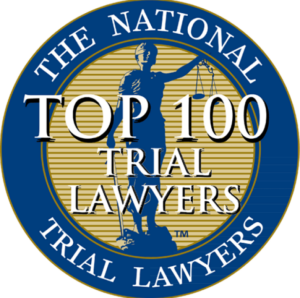
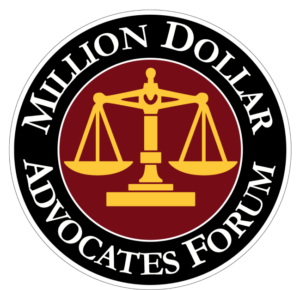

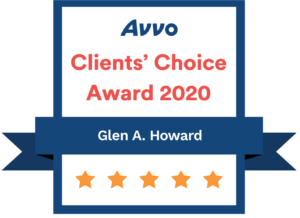
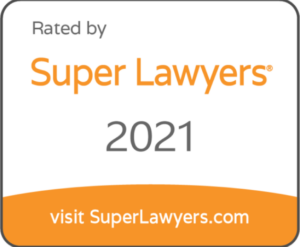
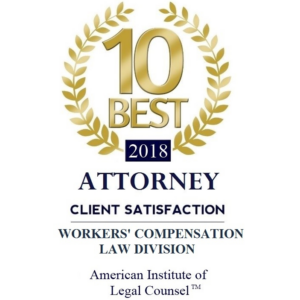
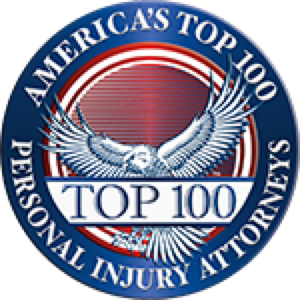
Like most personal injury lawyers, we work on a contingency fee basis, meaning we only get paid if you win your case. And we’ll help you understand your fee structure upfront. NO WIN, NO FEE!
- We get maximum compensation
- You get expert guidance
- We speak Spanish, Cantonese, Mandarin
- We have 20+ years of legal experience
- We have a great track record
- We are client-centric
I can’t stress enough how professional, attentive, and communicative Attorney Glen Howard has been during this entire process. He has made everything very simple and understandable for me. I would highly recommend him to anyone!
-Karen

I recommend Howard Injury Law to anyone who needs legal advice. There was not one time where I felt overwhelmed or rushed. Glen and the team were extremely empathetic to my situation and was diligent in handling my case.
-Luis





